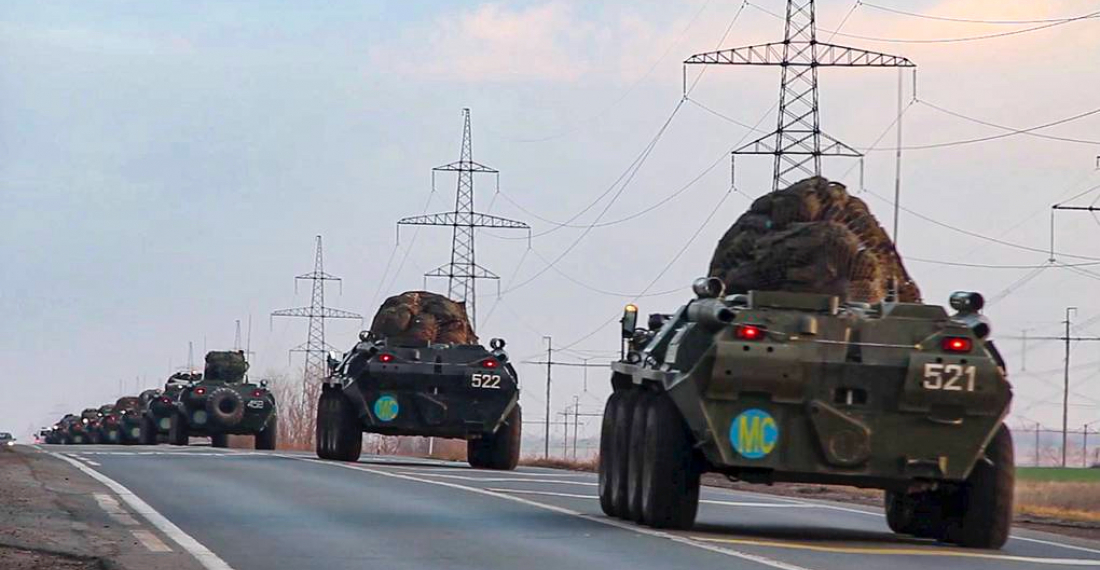The Russian army entered Karabakh on Wednesday 11 November, for the first time since the collapse of the Soviet Union in 1991.
Elements from the two thousand strong all-Russian peacekeeping force entered the territory after their deployment on Tuesday as part of an agrrement reached between Russia, Armenia and Azerbaijan to end the six week Karabakh war. According to the agreement a total of 1,960 servicemen, 90 armored personnel carriers, 380 units of car and special equipment will be deployed as part of the force.
There is still some confusion as to what role, if any will the Turkish army have. The Russians are adamant in saying that there will be no Russian peackeepers but Turkey and Azerbaijan insist that Turkish military personnel will be part of a "peacekeeping centre" to be set up as part of the agreement.
In a meeting with senior Turkish ministers who paid a working visit to Baku last night, president Ilham Aliyev referred to the new centre saying he had discussed it with Turkish president Erdogan earlier in the day.
"We also exchanged views on the activities of the Turkish-Russian joint ceasefire control center. I think this is a very important step. This is a new format of cooperation in the region. We have always wanted Turkey and Russia to play an equal role in the Armenian-Azerbaijani Nagorno-Karabakh conflict, and today we have achieved this. We will talk to you today about the future activities of this center and with our Russian colleagues to establish this center as soon as possible. Because there is already a schedule for the withdrawal of the Armenian armed forces from our lands. By the end of this month, they must withdraw from all lands, still occupied. Thus, there is a great benefit in creating this center in a short time."
source: commonspace.eu with agencies
photo: A Russian convoy is seen entering Nagorno-Karabakh (screen grab from Rustavi 2 TV, Tbilisi)






